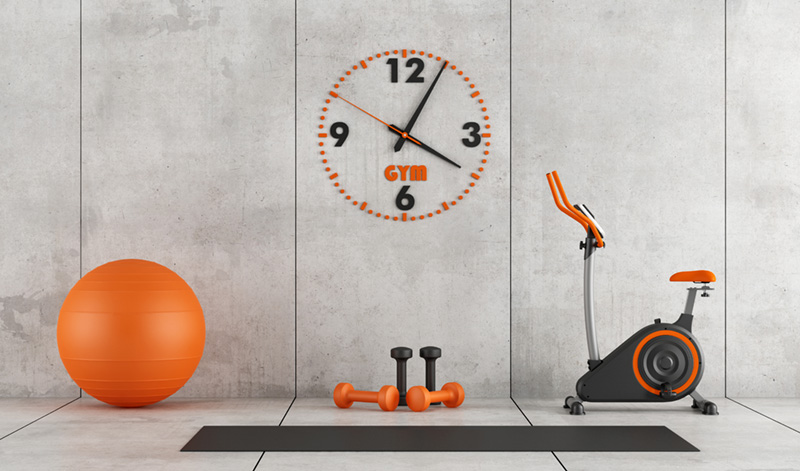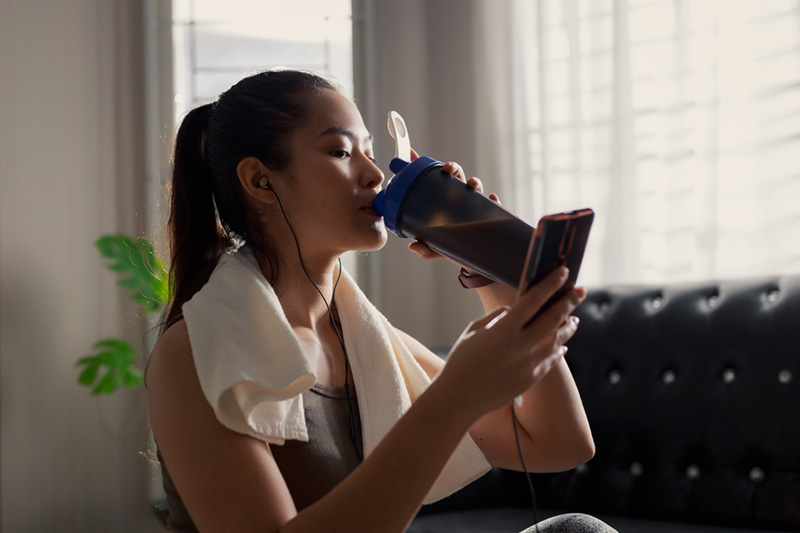[Sports Nutrition] Train Right, Fuel Right

Living in Hong Kong is very much about being on the move 24/7. And by “the move”, I mean being efficient at everything we do – working, talking, eating, walking, walking on an escalator, walking on a park even… just no time to waste. But what about actually getting moving? The Health Behavior Survey 2018/19 conducted by the Centre for Health Protection (HK) revealed that 16.8% of local adult participants had insufficient physical activity.
If you are like many others in this metropolis who understands the importance of exercising but do not have the time for it, or are not sure where to start, how to do it right, etc… let’s stretch out, tie your laces, and hop on this new series “Sports Nutrition” where we share evidence-based guides and recommendations on exercise and diet to help you succeed!

How much exercise do I actually need?
The short answer: the more, the better. The World Health Organization has established specific recommendations for different age groups and populations, see highlights below:
- Infants (i.e. less than 1 year):
- Be physically active several times a day, more is better
- Children and adolescents:
- Exercise for at least 60 minutes a day, moderate to vigorous intensity
- Adults aged 18 and above:
- Exercise for at least 150 minutes of moderate-intensity activities a week, or 75 minutes of vigorous-intensity activities a week
- Pregnant and postpartum women:
- Exercise for at least 150 minutes of moderate-intensity activities a week
Sounds like a lot? Good news – you do not have to finish them in one go! Feel free to plan out short sessions around your schedule, for example, walking for 15 minutes after lunch on weekdays would already meet 50% of your weekly goal!

How do I measure exercise intensity?
Moderate intensity exercises are one that you can do while talking but not singing in the meantime, which include but are not limited to:
- Riding a bicycle
- Walking
- Climbing the stairs
- Pushing a stroller
- Ballroom dancing
- Washing the windows
- Mopping the floor
Vigorous intensity exercises are one that you would go out of breath if attempting to talk at the same time, which include but are not limited to:
- Jogging
- Aerobic dancing
- Speed cycling or bicycling uphill
- Hiking uphill
- Swimming laps
Sounds like a lot to get through? Good news! You can actually divide the total duration into short single sessions to best fit your schedule. For example, walking for 30 minutes after lunch from Monday to Friday would get you covered for the week!

How to fuel right?
Before exercise
- Usually, timing your last main meal 2-4 hours before exercise would prevent stomach upset
- Athletes may consider having a small snack before training session
- Carbohydrate-rich foods for energy top up
- Low fiber, low fat, and easy-to-digest to avoid stomach upset
- Familiar food to minimize especially before event day
During exercise
- For sessions less than 60-90 minutes, no need of extra carbohydrate refuel, may replenish on small amount of fluid
- For sessions longer than 90 minutes, rehydrate and refuel on carbohydrates depending on training duration, intensity and sweat rates
- For ultra-endurance and/or multi-day events: consult your dietitian for personalized recommendations around your training plan
After exercise
- Nutritious, carbohydrate-rich foods helps restore glycogen store, consumed at subsequent meals and snacks
- Quality protein source helps promote muscle repair and growth, consume small servings throughout the day
- Rehydrate effectively with water
- Athletes with recovery period less than 8 hours should refuel on rapidly digested carbohydrate as soon as possible
- Athletes with longer recovery periods can incorporate recovery nutrition into the usual eating pattern.

References:
- Centre for Health Protection. Physical Activity. Available at: https://www.chp.gov.hk/en/healthtopics/content/25/8804.html. Accessed on 08Dec2021.
- HK Government. Exercise and Nutrition. Available at: https://www.gov.hk/en/residents/health/healthadvice/healthcare/exercise.htm. Accessed on 08Dec2021.
- World Health Organization. Physical Activity. Available at: https://www.who.int/news-room/fact-sheets/detail/physical-activity. Accessed on 08Dec2021.
- Centers for Disease Control and Prevention. Measuring Physical Activity Intensity. Available at: https://www.cdc.gov/physicalactivity/basics/measuring/index.html. Accessed on 08Dec2021.
- HK Department of Health. Fact Sheet on Physical Activity. Available at: https://www.dh.gov.hk/english/useful/useful_dykt/useful_dykt_exercise.html. Accessed on 08Dec2021.
- Sports Dietitians Australia. Eating & Drinking During Exercise. Available at: https://www.sportsdietitians.com.au/factsheets/fuelling-recovery/eating-drinking-exercise/. Accessed on 08Dec2021.

